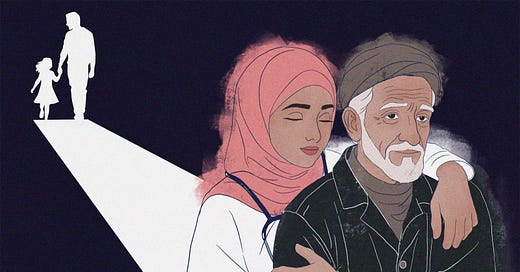To Build a Kitchen
A fund from Ideas Beyond Borders is helping one young woman create a future for her family while living under Taliban rule
There are times when Zahra* is tempted to quit her job at a hospital* in Afghanistan and return home. Life as a single woman in Kabul is frightening, and she dreads being targeted for some minor infraction. Earlier this year, the Taliban began arresting young women in Kabul for violating hijab rules, provoking terror among Afghan communities who view this as a stain on female honor. “Every night, I would think I need to quit my job because no amount of money and no career is equivalent to my family’s honor if they take me,” she says.
But as one of few women able to work under the Taliban, she is reluctant to leave. “When you look at the pain of people around you and their situations, you accept your own losses,” the 22-year-old says.
In the past, her brother was the family breadwinner, but as a translator for international organizations, he had to leave quickly when the Taliban took over. The rest of the family fled too, finding refuge in neighboring Iran before life there became impossible. “We were out of danger, but we couldn’t work. We were alive, but we weren’t living,” she says. So Zahra convinced her father they should return, knowing that women were still able to work in the health sector and he could resume his former role as a chef.
Now, she wants to help him set up his own catering company with support from an Innovation Hub grant. “As a doctor, I have a good network and can help him build a strong client base for his business,” she says.
At first, Zahra hoped to send money from her salary home, but wages are low, and most of it goes on living costs in Kabul, which are much higher than the provinces. Instead, she wants to help her father cater for weddings, parties, and other events so that he can support the family. “I have a lot of patients from different parts of the city. When they know he’s a chef, they can use him for their events.”
At present, the atmosphere is calmer in Kabul, and Taliban raids on women have eased. Having witnessed many female friends and relatives being forced to relinquish roles in different sectors, Zahra knows she is lucky to be working. “They need women to tend their wives and daughters; that’s the only reason they have allowed female doctors and nurses to remain,” she says.
These days, she keeps her head down, accepting the restrictions on women and adhering to Taliban decrees on dress and conduct. “Wearing hijab should be a personal choice, but it’s best to stick to the rules,” she says.
When she’s not at work, she’s busy helping her father build the family catering business, using the IBB fund to purchase equipment, hire employees, and rent kitchen space. “Knowing that there are organizations that support people in Afghanistan has given us motivation. It will help us get started; then we can grow,” she says.
This article was written by Olivia Cuthbert. *Ideas Beyond Borders uses pseudonyms to protect the identities of our grantees in Afghanistan




